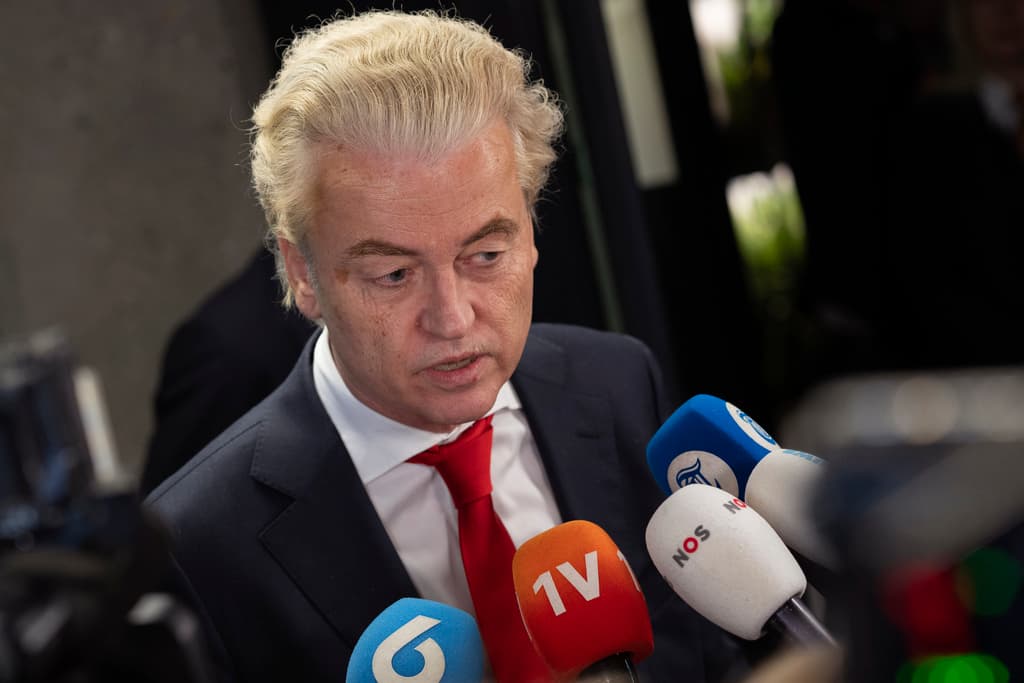Netherlands, in a Stinging Rebuke of the European Union, Suspends Schengen Agreement, Bringing Back Hard Border
‘We want to make the Netherlands as unattractive as possible,’ says the country’s immigration minister.

Call it a revolution in reverse. The decision of the Dutch government Wednesday to suspend the Schengen Agreement beginning in December and reintroduce hard border controls is a major move amid its crisis of illegal immigration and signals a new Euroscepticism.
The Schengen area consists of most of the European Union and is where internal border checks have for the most part been abolished. The Dutch decision — which will be in effect for six months —is a response to an illegal immigration crisis that has spiraled out of control and signifies a new Euroscepticism writ large.
“We want to make the Netherlands as unattractive as possible,” said the country’s Migration and Asylum Minister Marjolein Faber, a member of Geert Wilders’s nationalist and anti-immigrant Party for Freedom. The move met with a lukewarm response from Brussels.
“On November 11, the European Commission received a notification from the Dutch authorities regarding the reintroduction of border controls from December 9 until June 8, 2025. As always, the Commission will assess the notification and remain in close contact with the authorities,” a spokesman for the EU Commission said during a press briefing.
Germany has already reintroduced border checks at its land borders, following a surge in violent crime linked to asylum seekers. Chancellor Scholz, a Social Democrat, made that decision the day after the electoral defeat in elections in Saxony and Thuringia that saw the advance of the far right AfD party.
To the list of countries bucking the no-borders credo add Norway, which has decided to suspend the Schengen rules until December 1st. Although Norway is not a member of the European Union, like Switzerland and Iceland it has previously signed agreements with Brussels for the free movement of persons. The Norwegian government cast the decision as an attempt to ensure greater protection for its citizens against possible acts of terrorism.
For the Netherlands, which has in recent days been in the grips of immigrant-related violence, these amount to unprecedented measures and an attempt to tackle a migrant crisis that European authorities at Brussels have failed to resolve. It is more than reintroducing hard border checks.
There will now be new limits set on the number of family members who can join a person granted asylum in the country, a shortening of the duration of temporary visas and, most intriguingly, declaring parts of war-torn Syria “safe” so that authorities can reject applications for asylum by refugees from those regions.
As in Germany in recent years, Syrians are today the largest national group among migrants arriving in the Netherlands. First Berlin, now Oslo and the Hague — by now it is clear that the treaty that aimed to make Europe a territory of free movement is, while not wholly in tatters, showing tears in every direction.
Even France, which had reinstated special security measures during the Olympics, has yet to revoke them. Italy, for its part, has tightened border control measures at its border with Slovenia.
In the Netherlands, the development will not be easily decoupled from the scenes of violence that have gripped Amsterdam after packs of mainly Muslim youths attacked Israeli soccer fans, at one point torching a tram and turning parts of the city into no-go zones.
A Dutch politician from the center-right New Social Contract party, Jennifer van Vroonhoven, said on Wednesday that “our authority has failed,” while Mr. Wilders stated that the “Jew hunt” made him “sick to the stomach.” He also described it as a “Moroccan problem,” underscoring how pervasive the immigration crisis is in Dutch society today.
While some Dutch opposition parties have accused politicians like Mr. Wilders of fear-mongering in respect of the recent urban antisemitic violence, the suspension of the Schengen agreement has so far generated virtually no pushback. That alone is a harbinger of more problems ahead — not for the Dutch, but for the European Union itself.

